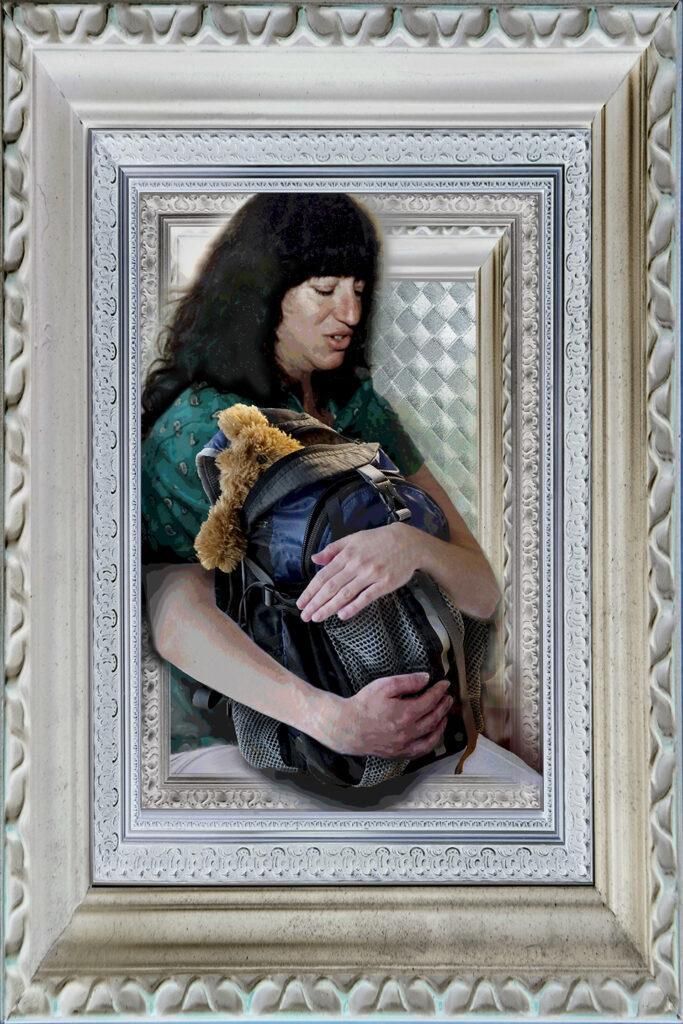Traveling from Ithaca, New York, is never easy. And to travel from Ithaca to Australia can take over thirty hours if all goes well and none of the three flights is delayed or cancelled. During those thirty hours I will be offered only two small meals and a snack. During those thirty hours, unless I check my luggage or make a fast friend, I will be anchored to my bags. It feels like they’re filled with bricks. Precious gold bricks, considering the irreplaceable contents. I mean, there was no way I was going to ‘check’ my daughter’s ashes so she could ride in the cargo pit of the plane. Nor her stuffed puppy. Nor her baseball cap, nor her polar tech fleece jacket that had already gone to Australia and back with Marika two years earlier. No, I stuffed the box of ashes and everything else into my carry-ons. And now I’ll have to have to squeeze myself, with my backpack and rolling bag, into tiny airport restroom cubicles all the way to Australia. And during those thirty hours, I will fly far enough away from Ithaca on the first day of spring that my whole concept of the year and seasons will be totally rattled upon arrival in Australia on the third day of autumn.
In the Ithaca Airport waiting area I look around at my fellow travelers who are mostly engaged in tablets or smartphones that light up travel-worn faces. No one else is hugging their luggage for dear life or seems close to tears. My first flight is cancelled due to thick fog in Newark. So I am stuck in the Ithaca Airport, talking to Marika’s ashes for almost four hours. And when the new flight is delayed, there is a complete revision of the plan I’d worked on for months. It is still unclear if the newest flight will ever take off.
I hold the bulging backpack on my lap, wrapping my arms around the bulk of it the way I held my belly in the last weeks of my last pregnancy. Back then, if I was safe, Marika was safe, and being good to myself meant being good to her. Worries of cancer then were even more foreign and far away than Australia.
Marika’s first airplane ride was when she was three months old, and weighed nineteen pounds. My father had given me three hundred dollars to “go buy Gregory a toy for his birthday.” Instead, I bought airplane tickets to visit my Dad for a weekend. It was the first time I was traveling by myself with two children. Marika, who weighed only four pounds less than her just-turned-two-year-old brother, was always attached to me then. So she was along for the ride. That was decades ago. Over time we had all become veteran travelers.
Marika-in-the-box and I finally take off from Ithaca.
Traveling is not easy these post-9/11 days, but traveling with ashes is just asking for trouble. The security guard in Newark regards the sealed black box with a frown and furrowed brows. He scans my face. I hold my breath and don’t know where to look, back into his eyes or at Marika’s box. He nods in the opposite direction, “Step over there, please.”
Immediately I take out the documentation: the previously requested confirmation from the Australian Consulate, raised-seal death certificate, crematorium papers, and letter from the funeral home. Some terrorist somewhere must have tried the old box-of-ashes trick because every airport over the course of our trip has a special procedure for handling sealed boxes. Sometimes there is a particular broiler-like rack for ash boxes to get x-rayed on. Agents also run tiny laser-like flashlights over every inch. And then there are tests where they don rubber gloves and rub the box with a colorless liquid on paper that turns blue. Or doesn’t. In the Los Angeles Airport, my heart pounds and I momentarily abandon my shoes at the end of the x-ray screener when Marika and I are separated into different sections as they sonogram her box from every side. I recall a family vacation years back, just months after 9/11, when a last-minute random sampling search had targeted eleven-year-old Marika, separating her from me and her brother who had already charged ahead to board the plane. Torn between the two, I had run after her.
“It’s okay, Mareek,” I tell her ashes after the sonogram. Traveling with ashes, I have someone to talk to who shouldn’t be interfering with the plans. But she does.
“Mom, I’m starving. Pleeease. You promised,” I hear her every time we pass a Starbucks kiosk or airport sushi bar.
“Her remains,” they’d informed me at Bang’s Funeral Home, when I went to pick up the letter affirming that the box was indeed filled with ashes, “are the last physical leftovers, the flakes and chunks and chips of her bones.” Even reduced to crumbs, she’s still bossing me around. And as chunks and chips, she is heavy.
After three flights and what feels like a year later, Marika and I arrive at Sydney International Airport. Getting off the plane, I sense her excitement, especially when the security dog from Sydney Customs comes by, wagging its tail. I was sure, after all the fuss at each airport’s security station, our arrival at customs in Sydney would be the killer. But the security dog does not stop at our carry-on, now laid by my toes along the yellow line on the floor with everyone else’s belongings. The dog goes straight for the punky fat guy with the earring. It trots right by us to his stuff, which really appeals to that dog. And I swear I can feel Marika’s ashes jump for joy as it passes, “Here pup! Awwww, come ‘ere pup.” The dog ignores my precious bundle on the floor. So Sydney is the first airport out of four where my box of Marika is not subjected to swabbings, dustings, x-rays, or severe scrutiny. It took a fraction of a second to pass that canine sniff test, and now Sydney is ours without a single question. And dog-tired as I am, I quickly replicate, in the hotel room, the tiny altar I’d set up at home with her box, photos, stuffed Puppy, and chocolates. Through the hotel window, the early evening light on the harbor calls to me. Any mother and daughter would need to take a break after traveling non-stop together for almost two days. So I scurry out of the room, and right away begin my exploration of Sydney.

